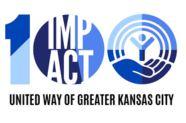Getting Right with Your Taxes: The IRS answers some questions
Frequently Asked Questions
QUESTION: Two years ago, I worked 2 months but never filed a federal tax return and do not have any documents to show that I worked. What should I do?
ANSWER: If your former employer cannot provide the information, you should request a copy of your Form W-2, Wage and Tax Statement, or Form 1099-MISC, Miscellaneous Income, from the IRS for the year you worked. There are several options to obtain this information: download Form 4506-T from www.irs.gov, call 1-800-829-1040, or visit the IRS Taxpayer Assistance Center near you. Once you receive all of the forms, you can take advantage of one of the free resources to file your return.
QUESTION: How do I get a copy of a tax return I previously filed?
ANSWER: There are several options. The IRS can provide a tax return transcript for many returns free of charge. The transcript provides most of the line entries from the original tax return and usually contains the information that a third party (such as a mortgage company) requires. To request a transcript online, go to www.irs.gov and click on the “Order a Transcript” tool. To order by phone, call 1-800-908-9946 and follow the prompts in the recorded message. To order by mail or fax, use Form 4506-T, Request for Transcript of Tax Return.
If you need a copy of your Form 1040 and all attachments as originally submitted to the IRS, use Form 4506, Request for Copy of Tax Return. There is a fee for each return when using this form.
QUESTION: I owe the IRS money for back taxes. I cannot pay the money. What should I do?
ANSWER: The first thing you should to do is call 1-800-829-1040 and talk to a customer representative. He or she will discuss your payment options based on your current financial situation. Several options are available to you including:
- An Installment Agreement to pay off the balance due over a specified period of time.
- An Offer in Compromise which allows you to make an offer of a lesser amount. If the amount is accepted by IRS you will not owe the rest of the money unless you do not continue to meet future filing requirements.
- If it is determined that your current financial situation does not allow you to make payments, they may temporarily suspend collection on the account, however interest and the failure-to-pay penalty continue to accrue.
QUESTION: What if I believe I do not owe the amount the IRS states that I owe?
ANSWER: You can contact 1-800-829-1040 to discuss how the IRS calculated your balance due. If a discrepancy exists, the representative will advise you how to correct it. You may need to file an amended return, an appeal, or take some other action. If you cannot get the matter resolved and need additional help you can contact the Taxpayer Advocate Office (1-877-777-4778).
QUESTION: My employer is paying me cash and I do not get any pay stubs or tax documents. What should I do about my taxes?
ANSWER: Generally, payments you receive for providing services are taxable and should be included in your income unless specifically exempted by law. Income that is taxable must be reported on your return and is subject to tax even if your employer does not provide you with tax documents, such as a Form W-2. See Publication 525, Taxable and Nontaxable Income, for more information.
QUESTION: My employer is not withholding income taxes from my wages. What should I do?
ANSWER: If no income tax is withheld from your wages, you may owe tax at the end of the year, or risk owing penalties for paying too little tax upfront. If you submitted a Form W-4, Employee’s Withholding Allowance Certificate, when you started working, your employer should be using the information from this form to determine the amount of federal income tax to withhold from your pay. You may want to use the IRS Withholding Calculator on www.irs.gov to help you figure out the amount you should be having withheld and see if you need to submit a new Form W-4 to your employer. Visit www.irs.gov or call 1-800-829-3676 to get a copy of Form W-4.
If the business you do work for did not ask you to complete a Form W-4, then they are most likely treating you as an independent contractor and should give you a Form 1099-MISC at year end. Basically, this means that you’re self- employed and are responsible for paying all of your own taxes – federal, state, social security and Medicare. You’ll be expected to make estimated tax payments to the IRS every three months.
For additional information about worker classification, refer to IRS Publication 1779, Independent Contractor or Employee. If you think you are being misclassified, a Form SS-8, Determination of Worker Status for Purposes of Federal Employment Taxes and Income Tax Withholding, can be filed to ask the IRS to make a determination on your worker status for federal tax purposes. Visit www.irs.gov or call 1-800-829-3676 to get a copy of Form SS-8 or Publication 1779. For more information on worker classification or Form SS-8, visit www.irs.gov or call 1-800-829-1040.
QUESTION: What are the benefits of filing a tax return?
ANSWER: No one likes to pay taxes, but it is the price we all pay to live in this great nation. First, it is a legal obligation if your income meets the filing requirements. But there are also benefits to filing. You may be entitled to certain tax credits (such as the Earned Income Tax Credit and Additional Child Tax Credit) and receive a refund from these credits and the taxes withheld from your paychecks only if you file a tax return. Filing provides proof of income for renting apartments, attending school, buying a car, home or other credit applications. Filing will also ensure that Social Security payments will be credited to your account timely, especially if you are self-employed. That way, you get all the retirement benefits you are entitled to and your family is provided for financially upon your death. It’s not always easy, but you can get help when you need it, and you’ll have peace of mind.
QUESTION: I have not filed tax returns for the last three years. Should I go back and file those returns?
ANSWER: Generally, you have three years from the due date of the return to file a claim for a refund. However, if you think you might owe, it’s important to understand the ramifications of not filing a past due return and the steps that the IRS will take. Taxpayers who don’t file a past due tax return or contact the IRS are subject to the following:
- Penalties and interest will be assessed and will increase the amount of tax due.
- The IRS will file a substitute return for you. But this return is based only on information the IRS has from other sources. Thus, if the IRS prepares this substitute return, it will not include any additional exemptions or expenses you may be entitled to and may overstate your real tax liability.
- Once the tax is assessed the IRS will start the collection process, which can include placing a levy on wages or bank accounts or filing a federal tax lien against your property.
- Even if the IRS has already filed a substitute return, it still makes sense for you to file your own return to make sure you take advantage of all the exemptions, credits, and deductions you are allowed. The IRS will generally adjust your account to reflect the correct figures.
QUESTION: I do not get my tax refund because it goes to pay my defaulted student loans. Why should I file a return when I will never get my refund?
ANSWER: If you have past due child support, defaulted student loans or past-due state income tax obligations, your refund will be applied to these debts. It is better that you file your return and pay down your student loan or other debt so that you can pay off the arrears instead of allowing it to continue to grow. The IRS is just a collection agent for these types of debts and does not have details on the status of these accounts or the ability to have the debt wiped out. The
Treasury Offset Program Call Center can give you additional information about these debts. You can reach them by calling 1-800-304-3107. The Federal Student Aid Information Center (FSAIC) can also answer your student loan questions. You can reach them by calling 1-800-4-FED-AID (1-800-433-3243)
QUESTION: How do I know if I qualify for the EITC or another tax credit?
ANSWER: Eligibility for the EITC and other tax credits is determined based on a number of factors. To qualify, you must meet certain requirements and file a tax return. The instructions for each form explain the rules for each credit. The rules can be complicated, so you should seek assistance if you are unsure of your eligibility. If you are in doubt about your eligibility, you should consult www.irs.gov or call 1-800-829-1040.
Adapted from IRS Publication 4924
Topics
Tags




